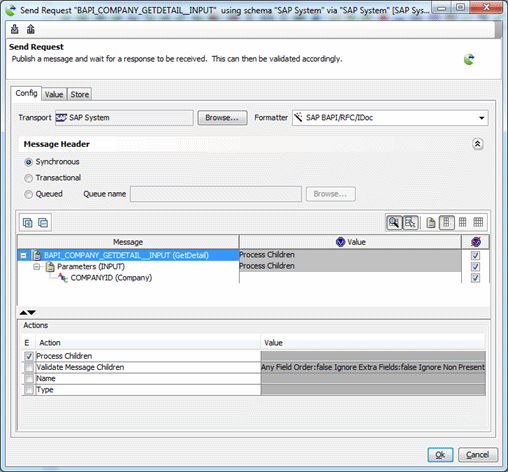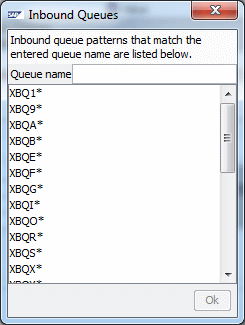Support for function invocation
HCL OneTest™ API supports business application programming interface (BAPI) and remote function call (RFC) invocation by using the Send Request and Receive Reply messaging actions.

| Function invocation style | Description |
|---|---|
| Synchronous |
Normal procedure call semantics. Sends a request
and blocks until a reply is received. Note: If you are using
HCL OneTest™ API 8.6.0 or later, any exceptions that occur during a synchronous
RFC invocation will be included in the reply message structure. |
| Transactional (tRFC) |
Asynchronous procedure call semantics. A request is sent and control returns immediately to the caller. No reply is received, so meaningful testing relies upon knowledge of any side-effects in the SAP system. This style does not guarantee execution order on the server. |
| Queued (qRFC) |
Asynchronous procedure call semantics. A request is sent to the specified server queue and control returns immediately to the caller. No reply is received, so meaningful testing relies upon knowledge of any side-effects in the SAP system. This style guarantees execution order on the server for all RFC invocations to a particular queue. A valid queue name must be provided in order for the invocation to be processed successfully. Clicking Browse displays a pop-up window that shows all inbound queue patterns that match the queue name.  Note: Entering text in the Queue
name field filters the list of matching patterns. |